Kia Ceed Sportswagon vs Renault Captur – Differences & prices compared
Compare performance, boot space, consumption and price in one view.
Find out now: which car is the better choice for you – Kia Ceed Sportswagon or Renault Captur?
The Kia Ceed Sportswagon (Estate) comes with a Petrol or Petrol MHEV engine and Automatic or Manuel transmission. In comparison, the Renault Captur (SUV) features a Petrol MHEV, LPG, Petrol or Full Hybrid engine with Manuel or Automatic transmission.
When it comes to boot capacity, the Kia Ceed Sportswagon offers 625 L, while the Renault Captur provides 422 L – depending on how much space you need. If you’re looking for more power, decide whether the 140 HP of the Kia Ceed Sportswagon or the 158 HP of the Renault Captur suits your needs better.
In terms of consumption, the values are 6 L per 100 km for the Kia Ceed Sportswagon, and 4.50 L for the Renault Captur.
Price-wise, the Kia Ceed Sportswagon starts at 24300 £, while the Renault Captur is available from 20100 £. Compare all the details and find out which model fits your lifestyle best!
The Kia Ceed Sportswagon and the Renault Captur cater to different needs but offer appealing options for modern drivers. The Ceed Sportswagon impresses with its spacious cargo capacity and refined driving experience, making it ideal for families who prioritize practicality and comfort. On the other hand, the Renault Captur stands out in the compact crossover segment with its stylish design and advanced tech features, appealing to urban dwellers who appreciate versatility and a trendy aesthetic.
Kia Ceed Sportswagon
The Kia Ceed Sportswagon is a versatile estate car that combines practicality with a touch of elegance. It offers a spacious interior, making it ideal for families or those with an active lifestyle. The vehicle's sleek design and advanced features make it a strong contender in the competitive estate car market.
details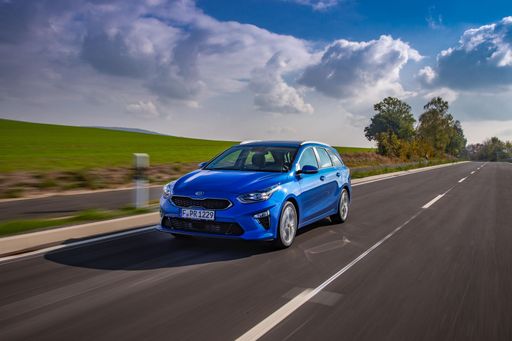 @ press.kia.com
@ press.kia.com
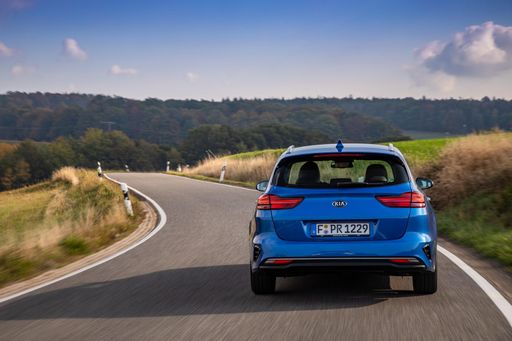 @ press.kia.com
@ press.kia.com
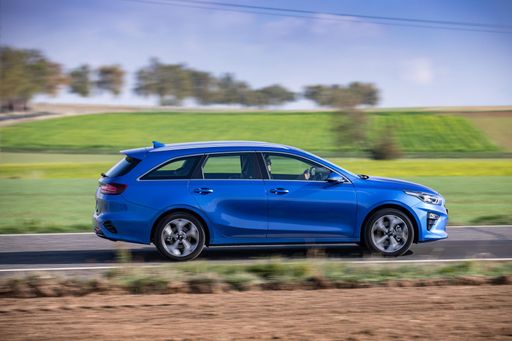 @ press.kia.com
@ press.kia.com
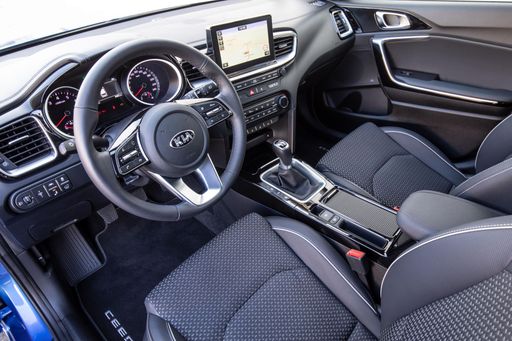 @ press.kia.com
@ press.kia.com
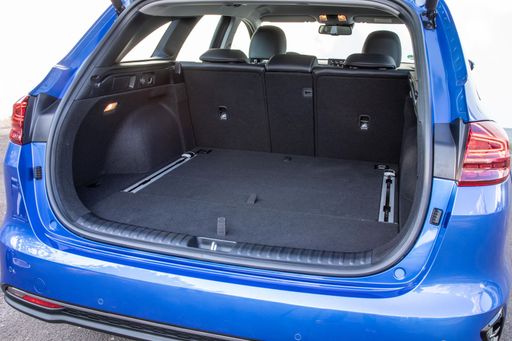 @ press.kia.com
@ press.kia.com
Renault Captur
The Renault Captur is a compact SUV that combines stylish design with practical functionality, making it a popular choice for urban drivers. Its interior offers a versatile and comfortable space, featuring high-quality materials and modern technology. On the road, the Captur delivers a smooth and efficient driving experience, perfect for both city commutes and weekend adventures.
details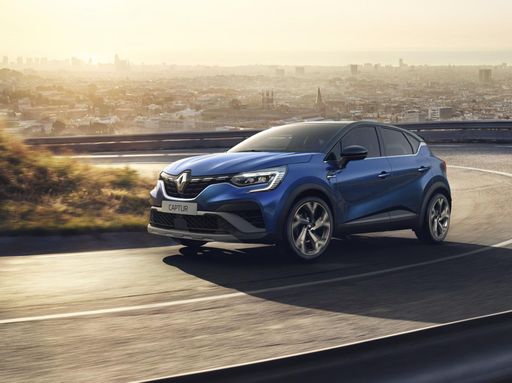 @ renault-presse.de
@ renault-presse.de
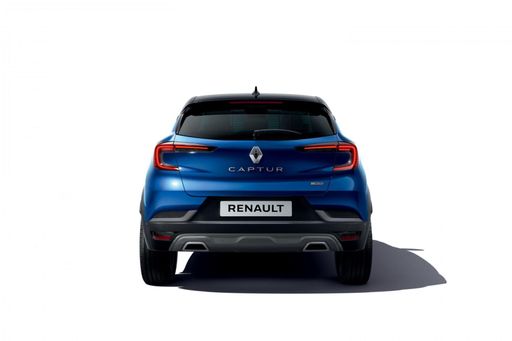 @ renault-presse.de
@ renault-presse.de
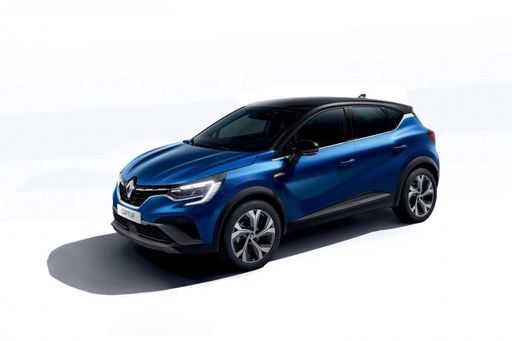 @ renault-presse.de
@ renault-presse.de
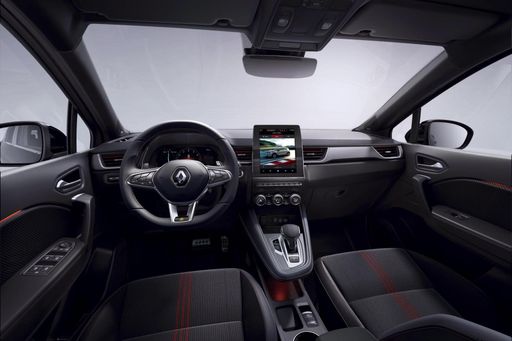 @ renault-presse.de
@ renault-presse.de
A Tale of Two Drives: Kia Ceed Sportswagon vs. Renault Captur
When it comes to choosing between a wagon and an SUV, both offering practicality and style, the decision can be tough. Two worthy contenders in this space are the Kia Ceed Sportswagon and the Renault Captur. Let's delve into the details to see how they stack up against each other in terms of technical prowess and innovations.
Design and Dimensions
The Kia Ceed Sportswagon and Renault Captur are perfect examples of how diverse the automotive world can be. The Ceed Sportswagon, with a length of 4605mm, width of 1800mm, and varying heights up to 1465mm, presents itself as a sleek, elongated wagon that promises ample space and a stylish presence on the road. Meanwhile, the Captur, sporting an SUV body type, measures 4239mm in length, 1797mm in width, and boasts a taller height of 1575mm. This gives it a more robust silhouette, typical of the SUV appeal many drivers seek today.
Engine and Performance
The Kia Ceed Sportswagon offers a versatile range of engines, including both Petrol MHEV and Petrol variants, with power output ranging from 100 to 140 HP. Transmission-wise, drivers have the option of a dual-clutch automatic or a manual gearbox, coupled with front-wheel drive. This wagon can hustle from 0-100 km/h in as quick as 9.7 seconds, making it not just spacious, but also a bit sporty.
On the other hand, the Renault Captur boasts a broad spectrum of engine options, with the choices of Full Hybrid, Petrol MHEV, LPG, and plain Petrol engines. Power figures here range from 91 to 158 HP. Like the Ceed, it comes in automatic and manual transmissions, though some versions feature a dual-clutch automatic option. The Captur's quickest 0-100 km/h time stands at 8.5 seconds, demonstrating its potential for quick sprints amidst urban landscapes.
Fuel Efficiency and Emissions
Efficiency plays a critical role in defining contemporary cars, and here both vehicles show their strengths. The Kia Ceed Sportswagon offers a consumption rate between 6 and 6.4 L/100 km. However, its CO2 efficiency class is rated at E, with emissions starting at 137 g/km.
The Renault Captur takes the lead regarding fuel economy with figures as low as 4.7 L/100 km, thanks in part to its Hybrid option. Added to that is a more favorable CO2 efficiency class of C, with emissions from 106 g/km, reflecting a cleaner environmental footprint.
Practicality and Comfort
For families and those with an active lifestyle, space and versatility rank high. The Kia Ceed Sportswagon features a generous trunk capacity of up to 625 liters, perfect for long journeys or bulkier cargo. With seating for five across all versions, it ensures that comfort and roominess are checked boxes.
The Renault Captur, being a compact SUV, trades off some trunk space for a total of up to 422 liters. It, too, comfortably seats five, and its SUV configuration may appeal to those who enjoy a higher driving position and an all-around tougher look.
Conclusion
Both the Kia Ceed Sportswagon and Renault Captur bring their unique blend of features to the table. The Ceed, with its higher trunk capacity and sporty performance, appeals to those seeking practicality with a touch of excitement. Meanwhile, the Captur's diverse engine offerings, especially the hybrid, and its compact SUV stature, make it a solid choice for urban adventures and eco-conscious drivers. Ultimately, the best choice boils down to personal preference and lifestyle needs.

|

|
|
|
|
Costs and Consumption |
|
|---|---|
|
Price
24300 - 29100 £
|
Price
20100 - 28300 £
|
|
Consumption L/100km
6 - 6.4 L
|
Consumption L/100km
4.5 - 7.8 L
|
|
Consumption kWh/100km
-
|
Consumption kWh/100km
-
|
|
Electric Range
-
|
Electric Range
-
|
|
Battery Capacity
-
|
Battery Capacity
-
|
|
co2
137 - 146 g/km
|
co2
102 - 139 g/km
|
|
Fuel tank capacity
50 L
|
Fuel tank capacity
40 - 48 L
|
Dimensions and Body |
|
|---|---|
|
Body Type
Estate
|
Body Type
SUV
|
|
Seats
5
|
Seats
5
|
|
Doors
5
|
Doors
5
|
|
Curb weight
1335 - 1437 kg
|
Curb weight
1293 - 1514 kg
|
|
Trunk capacity
512 - 625 L
|
Trunk capacity
326 - 422 L
|
|
Length
4605 mm
|
Length
4239 mm
|
|
Width
1800 mm
|
Width
1797 mm
|
|
Height
1422 - 1465 mm
|
Height
1575 mm
|
|
Payload
455 - 485 kg
|
Payload
376 - 457 kg
|
Engine and Performance |
|
|---|---|
|
Engine Type
Petrol, Petrol MHEV
|
Engine Type
Petrol MHEV, LPG, Petrol, Full Hybrid
|
|
Transmission
Automatic, Manuel
|
Transmission
Manuel, Automatic
|
|
Transmission Detail
Dual-Clutch Automatic, Manual Gearbox
|
Transmission Detail
Manual Gearbox, Dual-Clutch Automatic, Automatic Gearbox
|
|
Drive Type
Front-Wheel Drive
|
Drive Type
Front-Wheel Drive
|
|
Power HP
100 - 140 HP
|
Power HP
91 - 158 HP
|
|
Acceleration 0-100km/h
9.7 - 13.5 s
|
Acceleration 0-100km/h
8.5 - 14.3 s
|
|
Max Speed
178 - 197 km/h
|
Max Speed
168 - 180 km/h
|
|
Torque
172 - 253 Nm
|
Torque
160 - 270 Nm
|
|
Number of Cylinders
3 - 4
|
Number of Cylinders
3 - 4
|
|
Power kW
74 - 103 kW
|
Power kW
67 - 116 kW
|
|
Engine capacity
998 - 1482 cm3
|
Engine capacity
999 - 1789 cm3
|
General |
|
|---|---|
|
Model Year
2024
|
Model Year
2024 - 2025
|
|
CO2 Efficiency Class
E
|
CO2 Efficiency Class
D, C
|
|
Brand
Kia
|
Brand
Renault
|
Kia Ceed Sportswagon
Introducing the Kia Ceed Sportswagon: A Blend of Style and Functionality
The Kia Ceed Sportswagon has entrenched itself as a preferred choice for families and individuals alike, merging dynamic styling with an impressive suite of functionalities. Embodying the attributes of a classic estate car, it offers ample space without compromising on elegance or driving performance.
Innovative Powertrains: Bridging Performance and Efficiency
The Ceed Sportswagon comes equipped with a range of powertrains designed to meet varying customer needs. From traditional petrol options to innovative mild-hybrid and plug-in hybrid systems, the range is catered to deliver on efficiency and power. The plug-in hybrid variant, especially, stands out with its ability to travel up to 50 km purely on electric power, and a remarkable combined fuel consumption of 1.3 L/100 km.
Performance Specifications: Power Meets Precision
Depending on the choice of engine, drivers can experience power outputs ranging from 100 to 141 PS, complemented by torque values between 172 and 265 Nm. Acceleration capabilities vary, with 0-100 km/h achieved in times ranging from 9.7 to 13.5 seconds, providing a performance spectrum to cater to different needs, be it efficiency or spirited driving.
State-of-the-Art Technology and Safety
Kia has packed the Ceed Sportswagon with an array of technological innovations aimed at improving safety and driving experience. From advanced driver-assistance systems to connectivity solutions, the car ensures both the driver and passengers stay safe, informed, and entertained throughout their journey.
Design and Comfort: A Space That Inspires
Aesthetically, the Ceed Sportswagon is both modern and sleek, with a length of up to 4605 mm and a height of up to 1465 mm ensuring a spacious interior. The boot space offers between 437 and 625 litres, catering not only to daily errands but also to road trips. Inside, the seating configuration comfortably accommodates five passengers, making it ideal for families and groups.
Economic Offering: Value for Money
With prices ranging from €26,590 to €42,080, the Ceed Sportswagon presents itself as an economically compelling option without skimping on quality or features. Furthermore, with different equipment lines available, from the elegant Vision to the sport-oriented GT Line, buyers have the flexibility to choose a model that aligns with their lifestyle and preferences.
In Summary: The Complete Package
The Kia Ceed Sportswagon is a testament to Kia's commitment to innovation, quality, and design. Perfectly balancing practicality and performance, it remains a formidable contender in the estate segment, appealing to those who seek a versatile vehicle capable of addressing a multitude of daily driving needs with flair and reliability.
Renault Captur
The Renault Captur: A Modern Fusion of Style and Efficiency
The Renault Captur has carved a unique niche for itself in the compact SUV segment, combining eye-catching design with advanced technology. As we delve into its technical specifications and innovative features, it's clear why this model continues to captivate automotive enthusiasts and everyday drivers alike.
Under the Bonnet: Power and Performance
The Renault Captur offers a diverse range of powertrains, catering to different driving preferences and needs. Whether you opt for a full hybrid or a mild-hybrid petrol engine, the Captur provides an impressive blend of power and efficiency. The power output ranges from 91 to 158 PS, ensuring a versatile drive whether you're navigating urban streets or hitting the open road.
With a fuel consumption range of 4.7 to 7.8 L/100km, Renault has engineered the Captur with an environmental focus, presenting one of the more economical offerings in its class. The CO2 emissions range from 106 to 139 g/km, adhering to modern demands for reduced environmental impact without compromising on performance.
Technological Innovation: E-Tech Hybrid System
An exciting feature of the Captur is its E-Tech hybrid system, a testament to Renault's commitment to innovation. This system intelligently combines a petrol engine with an electric motor to optimise energy usage, offering both power and efficiency seamlessly. This technology is particularly beneficial in urban settings where frequent stopping and starting can traditionally increase fuel consumption and emissions.
Driving Dynamics and Comfort
The Renault Captur is built with front-wheel drive and offers both manual and automatic transmission options, including cutting-edge dual-clutch systems for smooth gear changes. Offering a maximum torque of 160 to 270 Nm ensures a responsive drive across various terrains. Coupled with its agile handling and a maximum speed range of 168 to 180 km/h, the Captur is as adept on a motorway as it is in city environments.
Comfort has not been overlooked; with five seats and spacious dimensions of 4239 mm in length, 1797 mm in width, and 1575 mm in height, the Captur provides ample space for passengers and luggage alike. The boot space ranges from 326 to 422 litres, accommodating anything from daily grocery shopping to holiday luggage with ease.
Manufacturing Excellence: Safety and Quality Features
Safety and quality are core components of the Captur's design. It features advanced safety technologies and driver-assistance systems, ensuring peace of mind on every journey. The model's CO2 efficiency classes range between C and D, aligning with current environmental standards while still prioritising driver and passenger safety.
Conclusion: A Compelling Choice in Its Class
With a price range between €22,950 to €32,750, the Renault Captur represents a compelling balance of affordability and feature-rich ownership. For those seeking a vehicle that harmonises cutting-edge technology, ecological mindfulness, and dynamic driving experiences, the Captur stands out as a particularly attractive choice in the competitive SUV market.
In summary, the Renault Captur's combination of modern styling, advanced hybrid technology, and practical features places it firmly as a leading contender for anyone considering a contemporary SUV purchase.
The prices and data displayed are estimates based on German list prices and may vary by country. This information is not legally binding.
